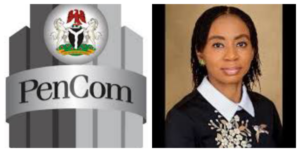

CBN Rolls Out Financing Framework for Mass Metering Programme
•Bars importation of fully assembled meters
The Central Bank of Nigeria (CBN) yesterday released guidelines for accessing funding for the mass metering programme recently announced by the federal government in a bid to close the 10 million metering gap in the country.
The apex bank, however, barred the importation of fully assembled meters and prohibited bringing infrastructure from outside the country that already exists within.
The federal government has also stated that it planned to completely deregulate Nigeria Electricity Supply Industry (NESI), akin to what is happening in the downstream sector of the oil and gas industry, where it has fully removed subsidy.
According to the apex bank, the aim of the scheme is to increase Nigeria’s metering rate, eliminate arbitrary estimated billing and strengthen the local meter value chain by increasing local meter manufacturing, assembly and deployment capacity.
Other objectives of the programme, the bank said, is to support Nigeria’s economic recovery by creating jobs in the local meter value chain, reducing collection losses and increasing financial flows to achieve 100 per cent market remittance obligations of the Distribution Companies (Discos).
The CBN said the move would improve network monitoring capability and availability of data for market administration and investment decision making.
It added that the introduction of the service-based tariff (SBT) in NESI effective from September 1, 2020, emphasised the need to close the metering gap in the NESI.
The CBN explained that closing of the gap will enhance the efficiency of revenue collection by Discos and thereby facilitate meeting their obligations to other upstream market participants.
However, the bank barred the importation of fully-assembled meters and prohibited bringing infrastructure from outside the country that already exists within.
It said: “Procurement of fully assembled meters from overseas is prohibited except meters imported by Meter Asset Providers (MAP) already in the country as at September 30, 2020, and verified by NERC.
“And importation of related metering infrastructure that is currently being produced in the country is also prohibited.”
However, the apex bank explained that the framework only outlines the operational modalities of the CBN financing support to the Disco and local meter manufacturers and restricted to the procurement and deployment of meters and the associated infrastructure (software and hardware) to support the metering network.
It stated that the bank facility will only be used for procurement of NERC-approved meters, payments for installation and deployment of meters, procurement of other metering infrastructure-related production and service provision as may be prescribed by NERC in relevant orders or by prevailing rules and regulations.
The bank also listed the procurement of backend metering platform and data management systems as well as customer enumeration services as some of the areas the facility should be invested.
According to the bank, the facility shall have a maximum tenor of 10 years but not exceeding 2030, adding that there will be a moratorium on the principal amount for a period not exceeding 24 months from date of loan disbursement.
As for interest rates to be paid, CBN stated that the facility shall be administered at an “all-in” interest rate of not more than nine per cent per annum or any other rate as may be specified by the bank.
“As part of the bank’s COVID-19 relief package, the interest rate to be charged up to 28th February 2021 shall not exceed 5 per cent per annum. Interest shall be payable by the loan beneficiaries in accordance with the approved repayment schedule outlined in the transaction documents.
“The “all-in” interest rate of nine per cent to be shared as follows: Participating Financial Institution (PFIs) – six per cent while sponsor (CBN) will pay- three per cent.
“PFIs are to remit the interest due to the CBN on a quarterly basis not later than 10 days after the end of the quarter,” it stated.
It added that the amount to be accessed would be determined based on the volume and type of meters to be procured by the Disco for the contracted MAP as well as the prices at which meters are bought during the bulk procurement.
The bank added that the eligible obligors should demonstrate verifiable evidence of technical capacity, track record of experience in manufacturing of key meter components, bankable business plans acceptable to the PFIs and financial capacity.



